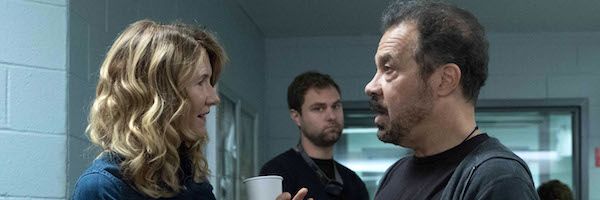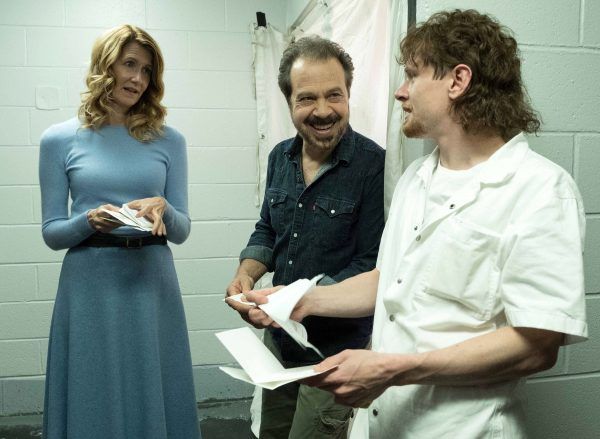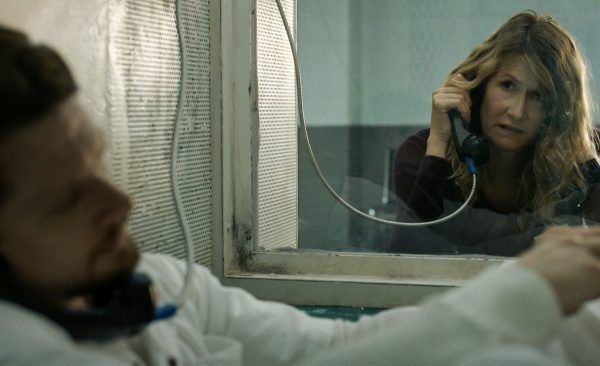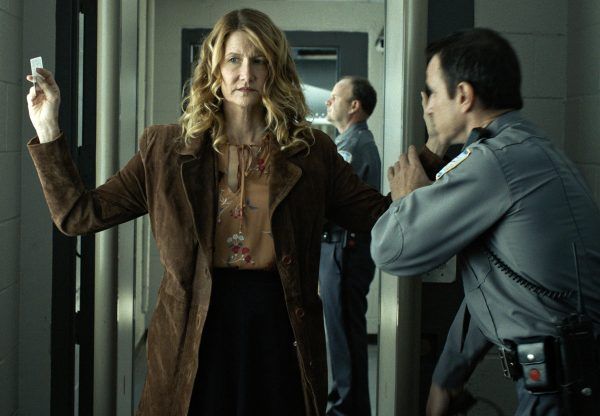From director Edward Zwick and screenwriter Geoffrey Fletcher, the indie drama Trial by Fire tells the true-life story of Cameron Todd Willingham (Jack O’Connell), a poor, uneducated man with a violent streak and a criminal record who found himself on death row in Texas in 1992, after being convicted of the arson-related homicide of his three young children. While in prison, he unexpectedly finds an ally in Elizabeth Gilbert (Laura Dern), who realizes that his sentence was a result of questionable methods and inaccurate conclusions, and sets out to attempt to save him before his execution.
During this 1-on-1 phone interview with Collider, filmmaker Edward Zwick talked about his reaction when he first found out about Cameron Todd Willingham, why Geoffrey Fletcher was the right person to adapt this story for the screen, what made Laura Dern and Jack O’Connell the actors to inhabit these characters, and the challenges of shooting the execution scene. He also talked about how he came to direct the first episode of the upcoming Netflix series Away, about the first human mission to Mars and starring Academy Award winner Hilary Swank, and how long he’s known executive producers Jason Katims and Matt Reeves.
Collider: When you first heard about this story, did you personally believe that Texas had executed an innocent man, or did you find yourself needing to dig deeper?
EDWARD ZWICK: It’s funny, we began this over 10 years ago and yet we find ourselves now being released at a time when people are finally paying attention to the reform of the criminal justice system, and maybe we can be a part of that conversation. I read David Grann’s piece, when it came out in The New Yorker. I’ve known David’s work for a long time. He used to write for The Republic before The New Yorker, and I knew him to be a scrupulous journalist. I also called him, and what he told me was that he went down to Texas with no preconceptions. He had heard about the case, and he wanted to investigate it as a reporter would, without bias. The conclusion he came to seemed irrefutable, so I did begin with some assumptions that he had drawn, but the deeper that I got into it, the more those seemed to be borne out.
This case reminded me a bit of the case of the West Memphis Three, who were young guys that had their music, the books they read, and their own personal tastes brought into the case, with really no connection to the crime. That kind of thing really makes you start to wonder just how often a state could try to execute someone who’s innocent.
ZWICK: When you evoke the West Memphis Three, that kind of demonization is also at play here. In this case, I just felt it was a catalog of the abuses. It was junk science. It was prosecutorial misconduct. It was the use of jailhouse snitches. And particularly, it was about poverty. It always seems to be about class and race. The people who cannot afford proper representation have so little chance of surviving any kind of capital crime.
Because you were involved with this project so early on, you had a hand in selecting the screenwriter. What was it about Geoffrey Fletcher that made him the right person for the job?
ZWICK: I’d known Geoffrey a little bit. I’d met him, over the years. I knew him to be someone of great intelligence. I also knew that he was going to be a diligent researcher, and that he’d be a great collaborator because he had directed himself, since he’d written Precious, and he knew the issues of being a director, as well. We spent many, many weeks trying to come up with a way to best tell the story, and it was really together that we came up with a notion of having the audience’s experience of the movie to be the same as the jurors, who condemned him quickly. And then, if we could then create that experience for an audience, their participation in the rest of the movie would be active because they would be complicit in his fate.
There are some interesting storytelling devices in this film, especially when we see Todd as an observer in certain moments. Were those things in the script, or were those things that you came up with, once you started shooting it? How did those devices come about?
ZWICK: Those devices were very much my intention, from the beginning, and Geoffrey and I talked a lot about how to present them, how to keep changing that point of view, and how to have those things revealed, in different ways.
From the beginning of the movie, you know that the moment of execution is inevitable. How did you decide the way you wanted to approach that scene? What was that moment like to shoot it?
ZWICK: Obviously, we all knew it was coming. They created the exact replica of it. Personally, I always do a lot of homework before shooting, and I found myself putting it off and putting it off because I felt the same dread that all of us felt. The person we really wanted to care for, most of all, was Jack [O’Connell] because he had to put himself in a very particular state, in order to do that scene. You try to contrive ways to shoot that kind of thing for everyone, with as few takes as possible, so I used more than one camera to try to have the actual act of it done as infrequently as possible. On the other hand, it’s a movie and you have to go through the repetition, but it became harder, rather than easier, as we went. You’re making a movie, but you’re also an audience because you’re watching this thing happen. We suspend disbelief, the same way that an audience does, so you end up participating, and it was very, very difficult.
With such heavy subject matter, the way to get audiences to want to see this film is by casting the right people in the roles. You really want to take the emotional journey with these two people. When Laura Dern reached out to you to say that she wanted to be a part of this, what made her the right person? And what was it that led you to Jack O’Connell?
ZWICK: Laura and I knew each other a little bit. We had friends in common. Her work is no secret, when you’ve watched her, throughout her career. I knew that Laura was very involved in activism. I also knew her to be an extraordinarily empathic person. I also knew her to have had grown children, and to have just gone through a very difficult divorce. Many of those things all conspired to set her up for what she might bring to the part. But more than that, I just felt that Laura has this ability to participate actively in each scene, without any preconceptions as to how those scenes might go. And I deliberately contrived to keep Jack and Laura apart. I did my work with him, and my research with her. We shot Jack’s scenes at one time, and hers at another. Their meeting was really the first time that they’d worked together, so we were able to capture the spontaneity, the obstacles, and the discomfort that they experienced. I knew that Laura would allow herself to discover those moments, rather than what might have evolved out of rehearsal. I wanted that kind of spontaneity. And with Jack, we knew about ‘71 and Start Up. We’d seen his work. We knew how brave he was. So many actors are self-protective, and they’re desperately concerned with how sympathetic they might appear to an audience, and I knew Jack would be utterly unafraid of that, and that he would just trust himself and the story to reveal the depth and the soulfulness, but not pivot and not be afraid of the other side of that. That gave him a distance to travel in the piece. Some of the things that he did, like the work in solitary, when we spent hours in there, all night long, because it’s digital and you can spend time, and let that all happen and evolve, were just so great. Frankly, it was what I was hoping for.
It was announced earlier this month that you’d be directing the first episode of the upcoming Netflix series Away, with Hilary Swank, and that you’d also be serving as an executive producer on that project. What attracted you to that and made you want to have a hand in telling that story?
ZWICK: Jason Katims and Matt Reeves are executive producers on that show. I’d read Jason’s play in Louisville, and I invited him out to California to work on My So-Called Life. That was his first job. And then, I worked with him on his first series that he did for us, called Relativity. So, I’ve known Jason for more than 20 years now. And I met Matt when he was a young film student out of SC, and I actually gave him a directing job, which was his first one. And then, he and Jason met and became friends. Out of the blue, about two months ago, they called and said they had done this pilot and asked if I would be willing to direct someone else’s pilot, which I had never done before. But I loved the thought of working with these guys who I was very fond of, so I agreed. So, we’re going to do that together.
Hilary Swank is another incredible actress. What made you want to work with her?
ZWICK: Hilary and I had once tried to work together on something that hadn’t worked out, but I obviously knew her work. I’m very attracted to that kind of talent. It certainly makes my life exciting, and it makes me better.
Trial by Fire is now playing in theaters.




